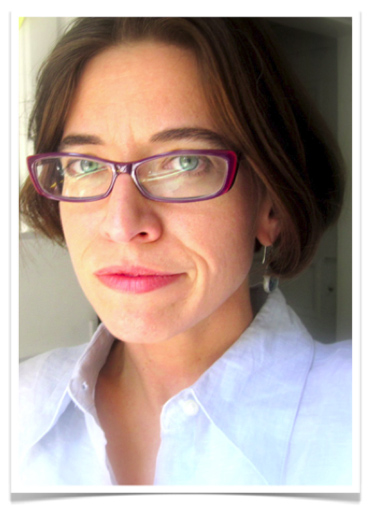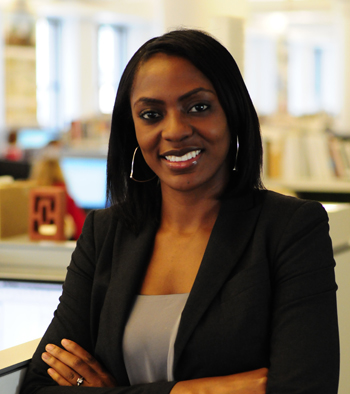Meet Mary Churchill, a woman with a multifaceted career: she is a sociologist, academic administrator, writer, and advocate of education reform. Mary recently founded the non-profit organization University of Venus, a collaborative venture bringing together the voices of Gen X women in higher education from around the globe. In her own words, Mary believes “in the power of education to radically transform people’s lives.” Here is her story.


What is your name, age, and location?
Mary Churchill, 44, Boston, United States.
What is your profession?
I am trained as a sociologist but I play many roles: academic administrator, mother, teacher, and writer to name a few.
I currently hold several official titles: Special Assistant to the Vice President of Institutional Advancement at Queens College, CUNY; Executive Director and Founding Editor of University of Venus blog and non-profit; and Faculty Associate at the Middle East Center at Northeastern University. Although my work varies by institution, I am constantly working towards the goal of social justice and equality.
I believe in the power of education to radically transform people’s lives. I am passionate about higher education reform. I believe in public education and I believe that everyone who wants a college degree deserves the opportunity to earn that degree in a respectful environment that puts learning at the center of their experience.
What did you study in school and what degrees do you have?
I earned a B.S. in Psychology from Michigan State University and an M.A. and Ph.D. in Sociology from Northeastern University. In graduate school, I studied identity, the social construction of knowledge and the intersection of race, class, and gender. My dissertation focused on all of these within the process of reading comic books. I decided early on that I needed to choose a topic that I could have fun with. I found a way to make reading comic books, hanging out at comic book shops, and interviewing comic book readers both scholarly and enjoyable.
What was your first job?
I was the only girl at my first job. It was in Friendship, Indiana and I was 14 years old. I stapled targets to wooden boards at the National Muzzle Loading Rifle Association’s Annual Shoot. It makes for an interesting story and I haven’t looked back.
Who or what inspired you to break into your current line of work?
The single most important influence in my life was an accident that turned my world upside-down during my senior year of high school. My father, brother, and sister were on a snowmobile that went through the ice on a lake near my house. Only my brother and sister survived. My father died at 43.
He had dropped out of high school when he was 16. When I was growing up, he worked the night shift on the line at General Motors. He hated his job but stuck it out, hoping to provide a better life for his kids. My father regretted that he never made it to college and talked about a dream of being a lawyer right before he died. The fact that his dreams were cut short inspired me to get a doctorate degree.
From as early as I can remember, everyone in the house knew that I would go to college. The funny thing was that no one really knew what that meant. My parents were unable to help me navigate anything related to higher education, from SAT tests to application essays and college prep courses.
As I work with first-generation college students, adult learners, and other non-traditional students, I think of myself and my father and I know that I’m doing the right thing. I have been there and done that. I believe that I know what needs to be done to make a difference in their lives.
Name/describe what has been your most rewarding project so far?
This past January, I joined forces with a group of amazing women to launch a blog and a non-profit – University of Venus – GenX Women in Higher Ed, Writing from Around the Globe. Our goal has been to create a community where the next generation of leaders in higher education could be creative, share stories, brainstorm solutions, and think differently. It has exploded!
Our contributors represent a diverse cross-section of global academia and their inspiring stories are being read in over 125 countries. We have an active network of supporters on Facebook and Twitter and in July, our blog was picked up by Inside Higher Ed and we now reach a daily readership of over 90,000.
We are currently in the process of creating a non-profit organization focused on leadership development and advocacy for women and other groups that are under-represented at the senior levels within higher education. We believe that higher education needs to change and we know that we have what it takes to change it for the better.
Name/describe one incident when being a woman has helped your career?
One specific way that being a woman has helped has been through the networking and support that being with other women has offered – from growing up with two sisters and living with a bunch of women in the dormitory at MSU to being active in Women’s Studies programs and participating in the HERS leadership program at Wellesley. Time and time again, these networks have helped me be in the right place at the right time and, more importantly, they have offered support and given me the self-confidence to take risks and to push myself.
Name/describe one incident when being a woman has hindered your career?
Labels and prejudice always hinder us. Gendered expectations for women (and men) create a situation where we walk a fine line between what is expected from us (as women) and what we know is right (as humans).
I am usually direct and honest with people and because I am a woman, this is rarely expected and often misunderstood. It has caused problems with a few senior leaders and I have been coached to “just play the game,” meaning – act like a woman. I refuse.
Who is your role model or mentor (alive or dead)?
Choosing a single person is an impossible task. The lives of several women have inspired me to take a different path, a more difficult path: Billie Holiday, Josephine Baker, Frida Kahlo, Willa Cather, and Georgia O’Keefe to name a few. Each of these women led a difficult life and each made decisions that made their life more challenging. The world has benefitted from the risks they took, the tough decisions they made.
Always think of yourself as a role model – you never know who might be watching and hoping to be inspired by your life.
If you could give one piece of advice to a woman starting out in your field, what would it be?
Always keep your options open.
![]()
Links:
Follow University of Venus on Twitter
Special thanks to Lex Schroeder for making this happen!
– Interview by Elena Rossini

